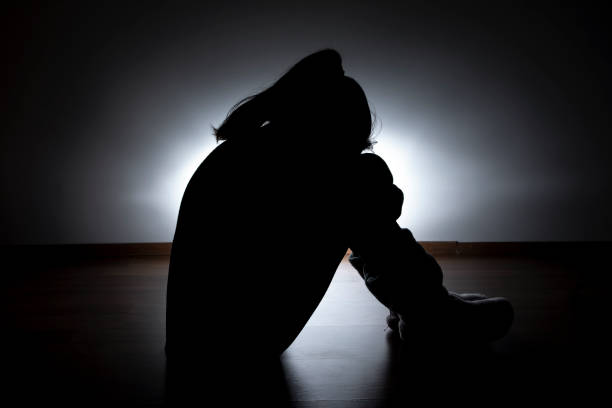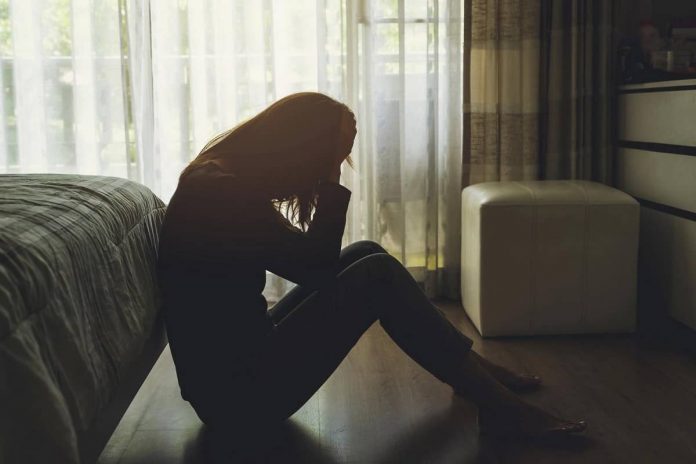What causes depression and anxiety in successful students, professionals and outwardly stable individuals? Nineteen million adults in the United States are affected by depression every year. Depression can cause an extremely low mood, worthlessness, and a loss of pleasure in everyday life.

Depression is considered to be a chronic medical condition because it can affect the brain. Below is the scientific explanation of depression as a chronic medical condition treatable by drugs and therapy.
Table of Contents
Neurotransmitters
Depression’s effects on the brain are understood in the context of neurotransmitters. Neurotransmitters are chemicals neurons make and secrete to communicate with other neurons throughout the brain. Neurotransmitters are secreted by one neuron into the inter-neuron space called a synapse.
Once there, neurotransmitters can either activate or inhibit the other neuron in the synapse. According to MedlinePlus, depression is thought to be caused by abnormal levels of neurotransmitters disrupting the balance of brain activity. It is linked with abnormal neurotransmitter levels in the limbic system, which controls emotions, and parts of the cortex that controls thoughts and consciousness.
Although depression can be linked to a single event that threw the brain’s chemistry out of sync, for some individuals, these chemical changes causing depression occur with no identifiable trigger.
Clinical Depression
Once considered a “woman’s disease,” more than 6 million men have clinical depression yearly. Unfortunately, the image of depression as a female condition may keep men from recognizing it and seeking treatment.
Depression affects both men and women. It disrupts relationships and interferes with work and activities. The symptoms in men are similar to the symptoms in women, but men tend to express those symptoms differently. Common symptoms of depression include loss of interest in usually pleasurable activities, fatigue, changes in appetite, sleep disturbances, and apathy.
In women, depression may be more likely to feel worthless and sad. What causes depression in women, however, is the same clinical neurotransmitter malfunction within the brain. Depression in men, on the other hand, may likely make them withdrawn, irritable or hostile.
Men tend to deny having depression problems because they are supposed to “be strong.” American culture suggests expressing emotion is a feminine trait. Consequently, men who are depressed are more likely to talk about their physical symptoms than their emotional symptoms.
Depression in men can affect sexual performance, so many feel the problems are related to their manhood, when, in fact, what causes depression in men is an actual physical medical problem in the brain called clinical depression.
Depression in men can have permanent consequences. The C.D.C. reports that men in the U.S. are many more times likely than women to commit suicide. A staggering 75% to 80% of U.S. suicides are men.
More women do attempt suicide, but more men get it done. Most likely, this is because men use more violent means. Even contemplating suicide, women want to avoid making a mess or destroying their looks.
Men generally have a hard time dealing with depression’s stigma, and they are more likely to drink too much alcohol, abuse drugs, or pursue other bad behavior. Many men avoid talking about depressed feelings to even friends or family.
Clinical Depression Means What?
Neurologists and psychologists now have answers for what causes clinical depression. With clinical depression, the criterion for major depressive disorder is described fully in the Diagnostic and Statistical Manual of Mental Diseases, published by the American Psychiatric Association.
Mental health providers use this manual to diagnose mental conditions and by insurance companies to underwrite treatment. What can cause depression is a clinical mystery requiring tests and background history.
You must, as a clinical depression patient, have five or more symptoms over two weeks, most of the day and nearly every day. At least one symptom must be either a depressed mood or a loss of interest. Signs and symptoms:
- Depressed mood (in children and teens, depressed mood can appear as constant irritability)
- Significant reduction of interest
- Significant appetite decrease or increase
- Insomnia or increased desire for sleep
- Either restlessness or slowed behavior others notice
- Fatigue
- Feeling of worthlessness
- Trouble making decisions and concentrating.
- Recurrent thoughts of death or suicide
Teen Depression
Clinical depression can affect any age. Teens are heavily at risk, but young children also suffer from depressive disorders. However, clinical depression symptoms, even if severe, do improve with professional depression counseling, antidepressant medications or both therapies.
Anyone spending time with today’s teenagers knows what causes depression in teens at an alarming rate: puberty and other teens. General symptoms of depression regardless of age include having a depressed or irritable mood for at least two weeks without relief and having at least five clinical diagnosis symptoms.
- Teen suicide is the third leading cause of death in youth 10-24 years of age.
- To determine the diagnosis of depression, a health care professional will conduct an extensive medical interview and examination.
- Treatment for teen depression includes addressing medical conditions that cause or worsens depression. It can also include lifestyle adjustments, psychotherapy, and medication.
- Interpersonal therapy and cognitive behavioral therapy are the two major treatments.
- One-half of teens prescribed antidepressant medications get better between one to six weeks after commencing medication.
- Teen depression is a risk factor for other mental health disorders.
- Depression is the leading cause of disability in the United States over the age of five years.
- Prevention of teen depression addresses both specific and nonspecific risk factors, strengthens protective factors and uses an approach appropriate for the teen’s level of psychological development. The treatment is created in answering what causes depression in teenagers.
- Family members and friends are strongly advised to encourage depressed teens to receive counseling from a caring clergy member, psychologist or psychiatrist.
- The increase of bullying abuse among teenagers has caused a parallel increase in teen depression and the resultant suicides of victim teens.
Postpartum Depression
Many mothers experience the “baby blues” after childbirth, which commonly include mood swings and crying spells of short duration. But some women experience more severe depression, called postpartum depression.
Sometimes an even worse problem, postpartum psychosis, develops. Both situations need medical treatment to avoid serious consequences. Known figures, namely Princess Diana and Brooke Shields, have acknowledged suffering postpartum depression and obtaining treatment that relieved their depressions.
What causes postpartum depression in happy, healthy new mothers is particularly important to the new mothers themselves. However, the answer is the same as all of the preceding serious medical clinical depressions. The answer lies in misfiring neurotransmitters and chemical balances in the brain.
Postpartum depression isn’t weakness, and it can be a childbirth complication. Prompt treatment can help the new mother equalize and greatly enjoy her baby.
Postpartum depression may appear to be the baby blues. Still, the signs and symptoms are more intense and longer-lasting, interfering with your ability to take care of the baby or any other duties. Postpartum depression symptoms may include all of the baby blues and then some!
Call your doctor if your signs and symptoms of depression:
- Don’t fade after two weeks.
- Worsen
- Make it difficult to care for your baby.
- Make it hard to complete tasks.
- Include thoughts of harming yourself or your baby
- The risk of postpartum psychosis is higher if the woman has bipolar disorder.
Don’t wait and hope for improvement. Postpartum depression and psychosis may be life-threatening.
The above-referenced clinical depressions are the most common plaguing not only our country but all of the western world and much of the Far East. Globally these medical ailments are disturbing all elements of each country’s culture, economics, education and health care.
Even the military services have problems within their ranks dealing with clinical depression among troops and officers. The suicide of members of armed forces has risen to an unprecedented and carefully guarded number.
Unusual Causes for Depression
There are several uncommon, unusual causes for depression not linked to brain chemistry:
- Depressions of S.A.D. and Summer Depression are actual depressive disorders brought about by your reaction to changing seasons. People vary insensitivity, but this is a serious depression for those who suffer it.
- Smoking is a highly depressive action. With recent years’ revelations of physical harm, not only is the physical effect upon blood pressure causing depression, but addiction displeases the smokers who want to quit but are unsuccessful.
- Thyroid Disease causes an uncommon type of depression due to hormonal imbalances.
- Sleep Deprivation causes severe depression and, if not relieved, can even cause hallucinations and collapse.
- Internet Social Media Addiction is a definite diagnosis for persons who spend so much time on the computer they cannot sufficiently work outside the internet and cannot relate to issues unrelated to social media.
- Research reports that the end of anything you like or find good can trip your psyche into a depressive state.
- Birth Control pills are a known cause for some women to suffer clinical depression.
- Some prescribed medications have depression side effects.
Anyone suffering from depression needs to consult their doctor immediately. Help that person understand they deserve to feel good.




